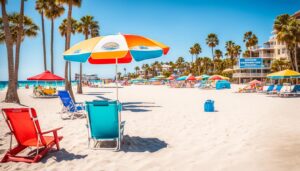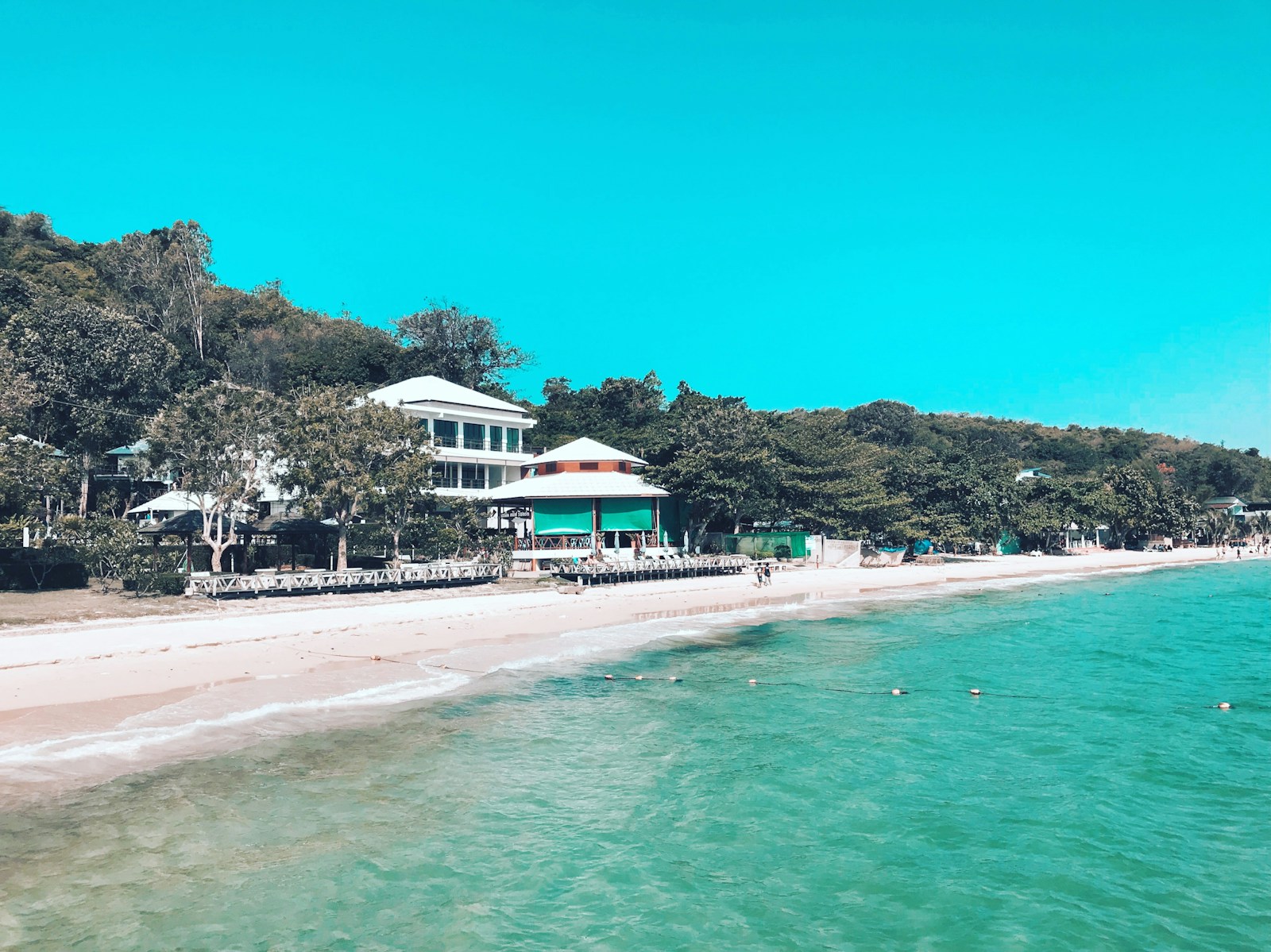Safety is likely at the top of your list of concerns when planning your next vacation. And if you’re considering Jamaica as your destination, you might be wondering, “Is Jamaica safe?” It’s a valid question, given the mixed reviews you might’ve come across online.
This article will delve deep into that question, providing you with up-to-date, reliable information. We’ll explore various aspects of safety in Jamaica, from crime rates to health concerns and even local customs you should be aware of. We’ll also offer practical tips on staying safe while enjoying your Jamaican adventure.
Remember, knowledge is power. The more you know, the better prepared you’ll be. So, let’s get started and help you make an informed decision about your trip to Jamaica.
Is Jamaica Safe for Travelers?
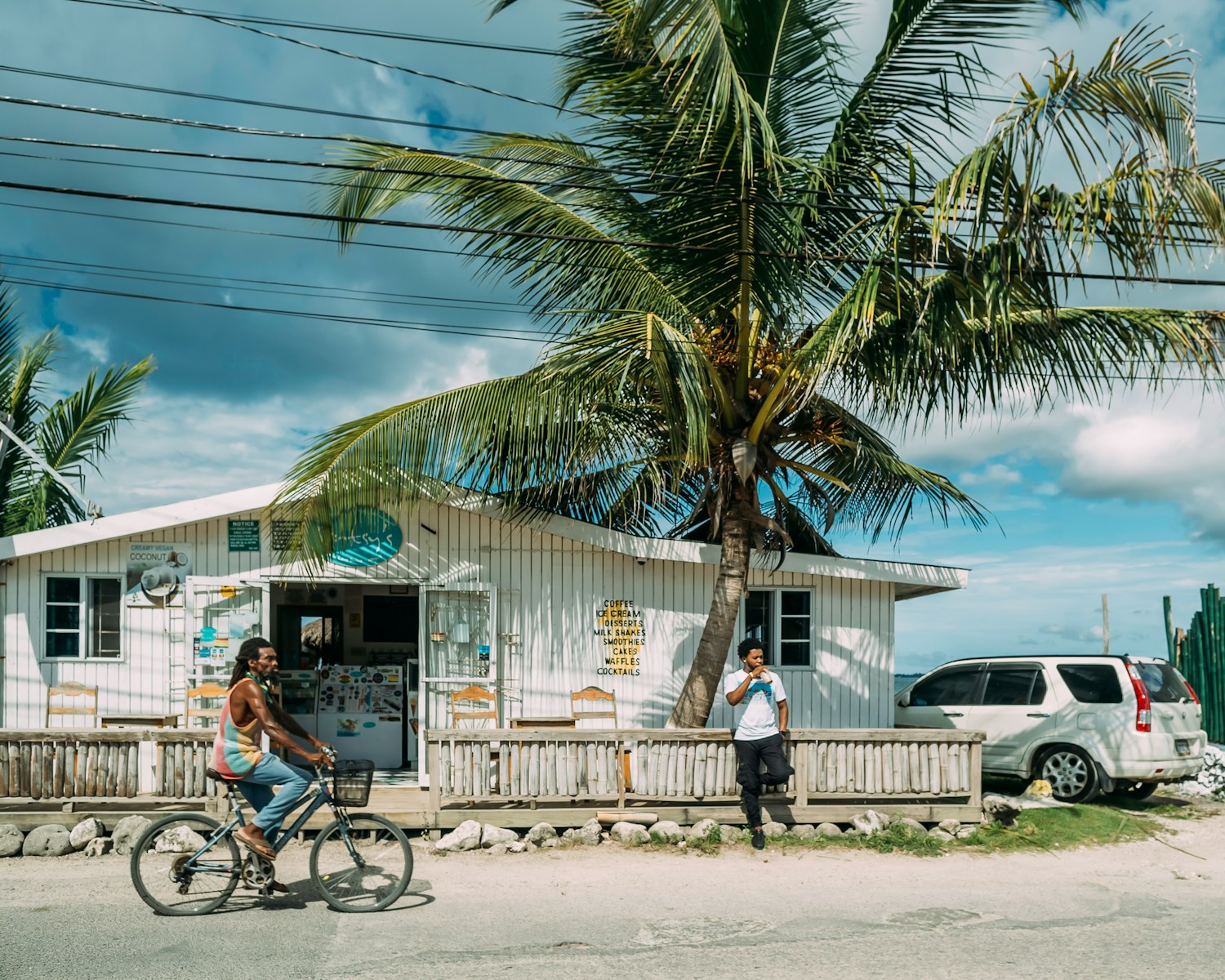
In this part of the article, we’re delving into the nitty-gritty details. We’ll examine the crime rates in Jamaica and discuss the local laws and customs you should be aware of. Armed with this information, you’ll be better positioned to safeguard your well-being during your trip.
Crime Rates and Statistics in Jamaica
Let’s talk about the current crime rates in Jamaica. The US Department of State has designated Jamaica as a “Level 2: Exercise Increased Caution” country. This might sound somewhat alarming, but it’s crucial to remember that crime can happen anywhere, even in the “safest” of nations.
Key statistics about crime in Jamaica for 2020 are tabulated below:
| Crime Rate | Number Of Incidents |
|---|---|
| Homicide | 1,301 |
| Robbery | 1,128 |
| Breaking and Entering | 491 |
| Larceny | 245 |
Local Laws and Regulations to Consider
Familiarizing yourself with Jamaica’s local laws and customs is another effective method of improving your safety. For example, you should remember that possessing even small amounts of marijuana can lead to legal ramifications.
On the brighter side, Jamaica has been proactive in introducing and enforcing laws to protect tourists, including cybercrime and copyright infringement regulations – so you can feel secure knowing that the authorities take tourist safety seriously.
Additionally, different regions have their distinct regulations, and it’s advisable to spend some time learning about the rules at your specific destination. You might find that small efforts like these tremendously increase your acquaintance with the local scene and, consequently, your safety.
We must remember that safety isn’t only about crime, and in the next section, we will be focusing on health-related precautions you need to take when traveling to Jamaica. So, keep reading to ensure you’re well-prepared for your Jamaican adventure.
Is Jamaica Safe for Families?
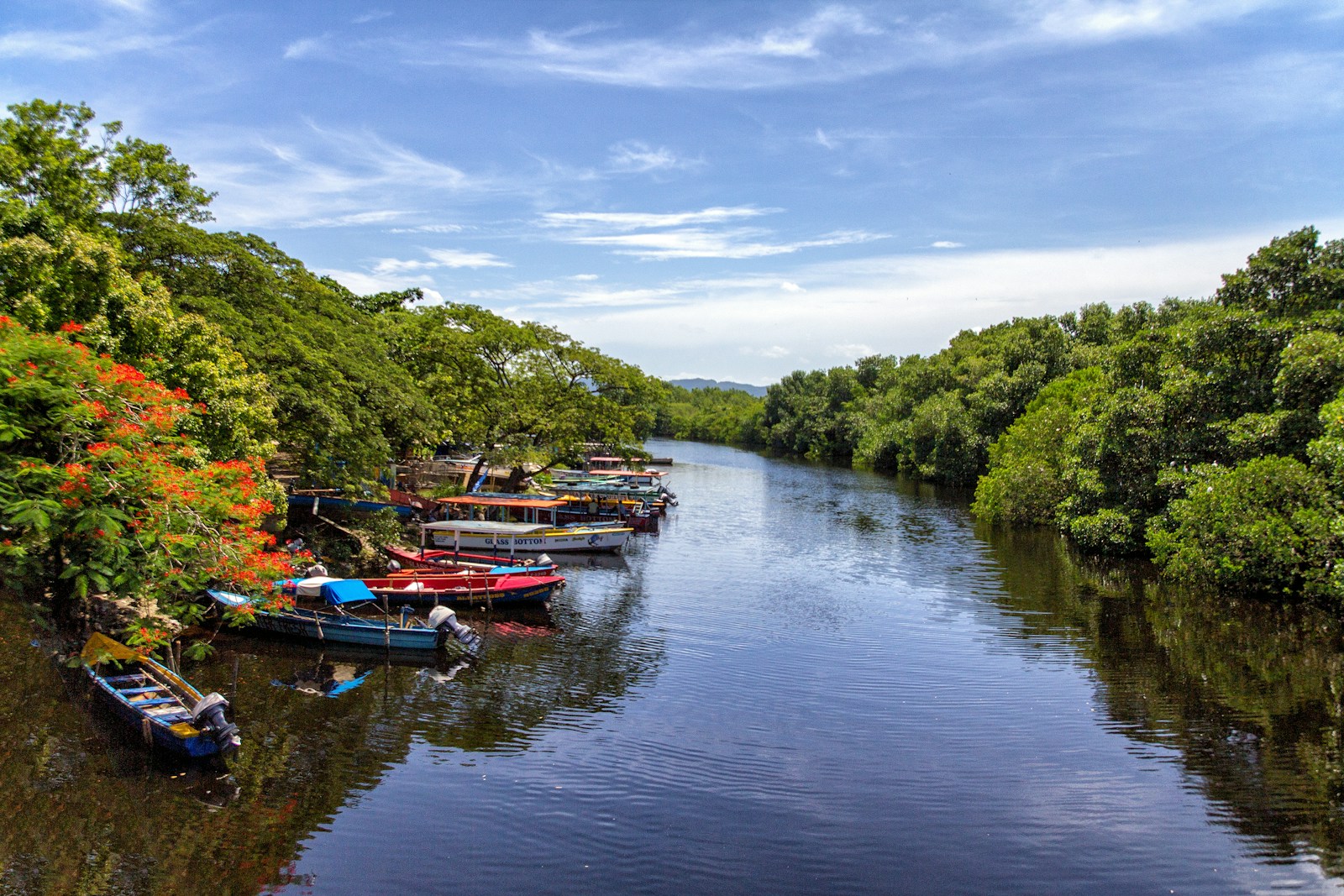
It’s time to move to one of the most frequently asked questions: Is Jamaica safe for families? The answer is yes but with a few caveats. Safety, as you’d imagine, is a relative term. What one family considers safe, another might view as risky. However, there are several measures you can take to ensure your family vacation on this beautiful Caribbean island is as secure as possible.
First, be prepared. Studying your destination beforehand doesn’t just enrich your understanding of the culture but is a key step in staying safe. Try to learn about the areas frequented by tourists and the ones to steer clear of—especially after dark.
Second, choose your accommodation wisely. Opt for well-guarded hotel complexes and resorts with good security measures in place. These establishments often come with the added advantage of being located near safer tourist spots. Family-friendly resorts often operate organized excursions that provide an extra layer of safety when exploring local attractions.
Third, don’t flaunt wealth. This rule applies no matter where you travel, but it’s especially applicable in Jamaica. Flashy jewelry, expensive gadgets, or large amounts of cash can attract unnecessary attention. Keeping a low profile can actually go a long way in ensuring your family’s safety.
The big question: crime rates. Let’s look at how Jamaica stacks up in this regard.
| Type of Crime | Rate in Jamaica |
|---|---|
| Property Crime | High |
| Violent Crime | Moderate |
| Petty Crime | High |
While the data might appear alarming, don’t let it deter you. As a tourist, you’re typically less likely to encounter these issues, especially if you’re staying within the confines of a resort or sticking to the tourist-friendly areas we mentioned earlier.
Safety Landscape in Jamaica
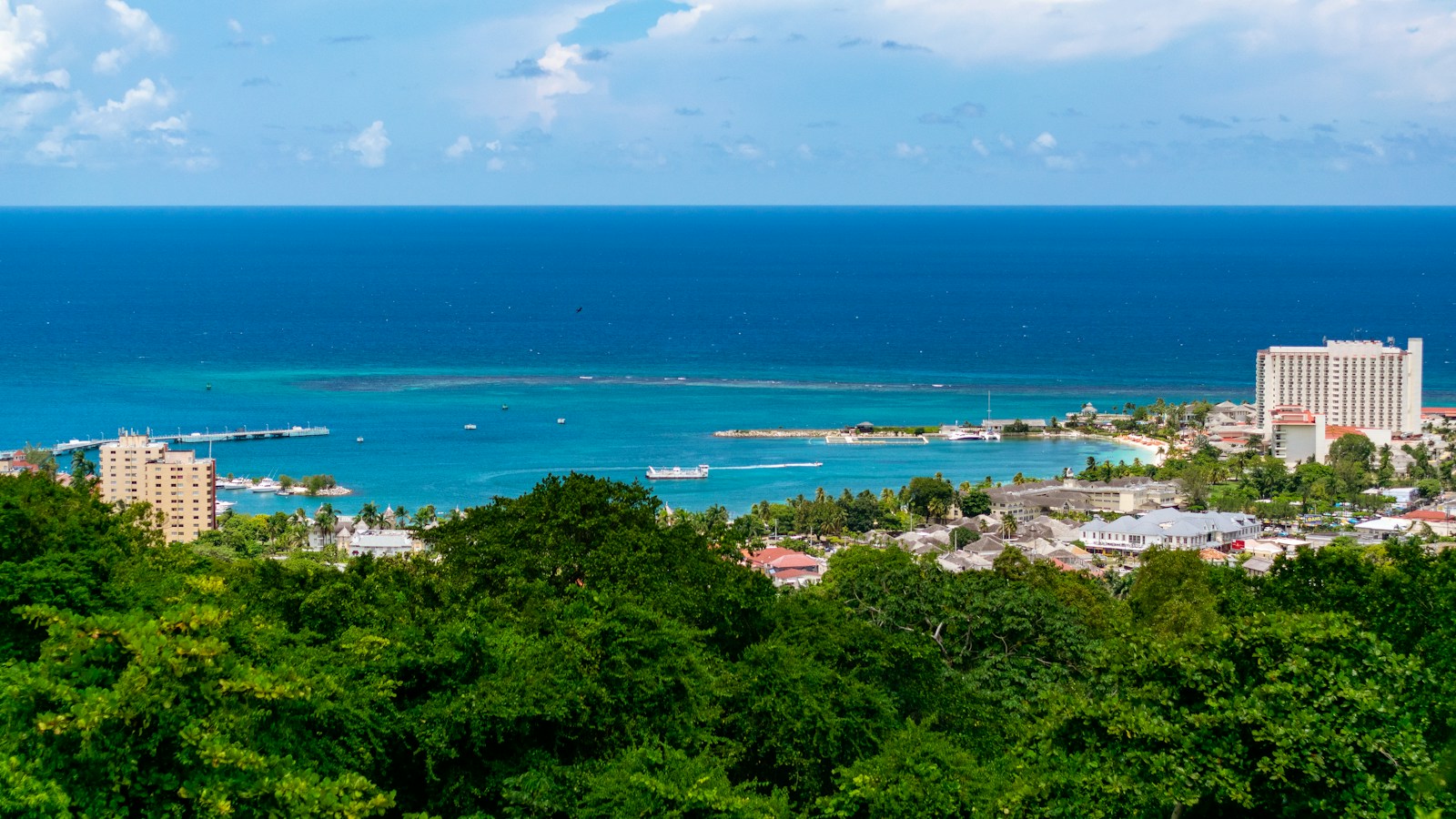
You’re probably wondering about the overall safety landscape in Jamaica. The fact of the matter is, just like any other place in the world, it has its ups and downs. It’s essential to grasp this in order not to let fear ruin your visit. By having a clear-cut understanding, you’ll appreciate what Jamaica has to offer while staying safe and sound.
Dangerous Neighborhoods to Avoid in Jamaica
While Jamaica is an incredibly vibrant and beautiful country, some areas are better left unexplored, mainly because of the relatively high crime rates. Kingston, the country’s capital, has some districts that are considered risky for tourists, such as Trench Town and Tivoli Gardens. Let’s not forget Montego Bay’s Flanker community, where crime rates run slightly higher than other areas.
In addition:
- The neighborhood of Grants Pen in Saint Andrew poses some safety hazards
- The interior parts of Clarendon Parish are known for sporadic outbursts of violence
- Certain downtown parts of Negril can get pretty dicey, especially after dark
Traveling these areas can lead to unfavorable experiences, and it’s always better to play it safe rather than setting yourself up for unnecessary hardship.
Safest Places in Jamaica to Visit
With proper knowledge and precaution, you’ll find numerous safe and exhilarating destinations across this island nation. Jamaica is not only about sunny beaches and reggae music; it’s a land complete with global resorts, historic sites, unforgettable landscapes, and warm, welcoming locals.
Here are some of the safest places to visit in Jamaica:
- Negril’s Seven Mile Beach: Here, you’ll find a relatively safe environment shielded by top-notch resorts. You’ll be spending days lavishing in the tropical sun while exploring fun water sports.
- Ocho Rios: This tourist town is well-patrolled and offers a haven of luxury resorts. Plus, you can visit the iconic Dunn’s River Falls.
- Port Antonio: Providing an authentic Jamaican experience devoid of mass tourism, you’ll enjoy natural retreats and secluded beaches here.
By doing some thorough research, utilizing common sense, and staying in areas known for their high safety measures, you can make your trip to Jamaica a memorable one. So, start packing. Jamaica awaits.
Emergency Services and Support in Jamaica
The level of emergency preparedness can greatly influence your safety and comfort during your visit to any country. In Jamaica, you’ll find an array of services ready to assist should an unfortunate event occur. We’re going to delve into the state of healthcare facilities, the availability of police and medical services, and a quick rundown of emergency phone numbers for your reference.
Healthcare Facilities in Jamaica
Jamaica’s healthcare system includes both public and private facilities. While public hospitals may lack some amenities or advanced treatments due to funding issues, private facilities are generally better equipped. The island’s main hospital, University Hospital of the West Indies, along with other private hospitals like Hospiten Montego Bay, offers advanced medical services. They’ve established a reputation for efficiency and professionalism. Ensuring you have travel insurance that covers medical expenses is a prudent step to save you from potentially high costs in these facilities.
Availability of Police and Medical Services
As for police availability, most tourist-frequented areas have a visible law enforcement presence. Jamaica’s Tourist Police (Jamaica Constabulary Force) are specially trained officers dedicated to ensuring the safety of visitors. They’re easy to spot in their distinctive white hats and khaki uniforms. On the other hand, medical services are widely available throughout the islands. Ambulance services are operational round-the-clock, but you’re advised to be aware that response times may vary depending on the location.
List of Emergency Phone Numbers in Jamaica
Equipping yourself with emergency phone numbers can empower you during your travel journey. Here’s a helpful table of critical numbers to have on hand:
| Emergency Service | Contact Number |
|---|---|
| Police | 119 |
| Fire | 110 |
| Ambulance | 110 |
| Tourist Police | +1-876-979-1569 |
Safety Tips for Public Transportation
Navigating Jamaica’s public transportation landscape can be a unique part of your vacation experience. However, it’s essential to keep a handful of safety tips in mind. Public buses, taxis, and minibusses are common modes of travel. Here is some advice to help safeguard your journey.
Firstly, rely on established transport services known for their reliability and safety. Jamaica’s government endorses a comprehensive list of licensed providers. Always confirm the legitimacy of your transport provider before you decide to hop in. It’s one of the best ways to ensure you’re in familiar and trustworthy hands.
Let’s delve into some specifics pertaining to various types of public transport you may use while in the beautiful island nation.
Buses and Minibuses
Public buses and minibusses are prevalent; they run along elaborate networks crisscrossing the entirety of Jamaica. They’re inexpensive and make for a genuine Jamaican experience.
Remember, accepted etiquette in public buses and minibusses is to mind your belongings and protect your personal space. Avoid unnecessary attention by keeping jewelry or high-end electronic devices out of sight. Be mindful of your surroundings, and stay vigilant.
Taxis
Taxis are an excellent way to get around Jamaica. For safe and pleasant travel, opt for taxis from Jamaica’s official taxi service – JUTA (Jamaica Union of Travellers Association) or an approved taxi company. Stick to agreed-upon fares before the journey starts. It ensures you’re not caught off guard by unexpected costs.
A noteworthy point for your taxi riding experience is to avoid illegal ‘robot’ taxis. They are unregulated and often associated with a rash driving style and overcrowded conditions. While they might be a cheaper option, the risks outweigh the cost benefits.
In this vibrant Caribbean paradise, experiencing the local way of life has its charm. But as you step out to enjoy Jamaica’s rich cultural heritage, ensure your safety isn’t compromised. Stick to the safety guidelines and make the most of your visit.
Note: Always remember to store emergency contact numbers from local authorities in case of sudden requirements or mishaps.
Local Customs to Stay Safe
Understanding and respecting local customs is a key part of staying safe in any foreign country. When you’re in Jamaica, the same rule holds true. Being aware of the dos and don’ts not only ensures you can avoid unwanted attention or possible confrontation but it also allows you to immerse yourself in Jamaica’s vibrant culture truly.
Firstly, the way you dress plays a significant role. Jamaicans generally dress conservatively, especially when inside churches or other religious institutions. Steer clear of wearing revealing or flashy outfits in public places to avoid drawing unnecessary attention to yourself. This is particularly important in rural areas where customs may be more traditional and less flexible.
Another important custom revolves around respect for older individuals. In Jamaica, respect for elders is highly valued. You’ll find that saying “sir” or “ma’am” to elderly individuals is common. So, don’t hesitate to use these titles when interacting with older locals.
Engaging in local customs can also include how you approach conversation. Jamaicans are warm and friendly, but discussions on politics and religion can be tricky. Some topics are better left untouched unless you’ve established a strong rapport with the locals. When in doubt, it’s best to listen more than you speak.
In public places, remain mindful of loud music or celebrations. Jamaicans love their music loud and their celebrations bigger! However, if you’re not accustomed to such loud environments, try to situate yourself in a quieter spot, away from the speakers. Though a part of the local customs, it’s essential to keep your comfort and safety in mind.
Lastly, remember that a friendly smile goes a long way in Jamaica. Embrace the local culture, mingle with the locals, taste their food, and understand their customs, and you’re going to have a fantastic Jamaican experience. But like any unfamiliar space, staying vigilant would serve you well.
It’s these little details of understanding and blending with local customs that can help you enjoy your Jamaican trip while staying safe. And the more you learn, the more enriching your journey will become.
Common Tourist Scams
Despite Jamaica’s vibrant culture, stunning landscape, and warm people, let’s admit it, every place has a bit of a not-so-good side. Tourist scams, rather unfortunate, are not alien to Jamaica. Here’s how you can identify and avoid falling prey to a few of the most common tourist scams.
An infamous scam you might come across is the unsolicited guide scam. Like any tourist hotspot, you’ll meet locals offering to show you around. Beware of these unregistered guides who claim you’re in unsafe territory, insisting on guiding you and then demanding hefty payments.
Outsmart them by sticking to licensed guides and tour companies. By all means, trust your instincts. If it doesn’t feel right, it probably isn’t.
Cabs are part of the local color in Jamaica, but some drivers exploit unaware tourists. The taxi scam includes drivers overcharging or opting for the longest routes to hike the fare. Always ask your hotel to arrange a taxi or choose licensed taxis. Remember, your Jamaican journey should be about more than the hustle.
Street vendors selling souvenirs might sometimes employ the product scam. They might sell crafts, claiming them as unique Jamaican handmade items when they’re cheap factory-made products from abroad. Explore and research local markets before you buy, and you’ll be less likely to fork over funds for fakes.
You might enjoy a game of Three Card Monte or Find the Ball on the streets of Jamaica, but remember these street games are rigged. The operator might let spectators win initially to draw your interest and then, when you participate with a hefty bet, ensure you lose. It might be enjoyable to watch, but it’s safer not to participate.
Lastly, while encountering wildlife is a beautiful part of the Jamaican experience, be wary of the wildlife scam. Individuals might offer you to take photos with exotic animals, then demand exorbitant fees. It’s better to enjoy these wonders at a distance.
So, while you’re embracing the rhythm of Jamaica, stay vigilant. Know that these scams don’t define Jamaica by any means. They’re only a stark reminder to be alert and smart while you navigate through unfamiliar territories. Your safety and the quality of your Jamaican experience is what matters.
Preparing for a Safe Trip to Jamaica
Now that you’re armed with knowledge about some of the challenges you might face, you’re set to prepare proactively for your Jamaican adventure. We’ll delve into an understanding the weather scenarios you might encounter, checking out travel advisories, and specific safety tips if you’re planning to travel solo.
Weather and Travel Advisories in Jamaica
The tropical climate of Jamaica is known for its hot and humid weather, with mild temperatures in the mountains. However, hurricane season runs from June to November, which can potentially disrupt your travel plans. Always check weather updates and forecast trends ahead of your trip so you’re not caught off-guard.
Keep abreast with the latest travel advisories issued by your home country’s foreign affairs department. These might include notifications about political unrest, health issues, crime rates or natural disasters, among other things. Official websites for travel advisories generally give you a balanced perspective of all you need to know, offering critical advice that can shape your travel decisions.
Safety Tips for Solo Travellers
Traveling solo can be a transformative experience. Yet, traveling solo in Jamaica, as anywhere in the world, requires an additional layer of caution. Here are some important tips to keep in mind:
- Prioritize staying in well-known tourist areas and accommodations. These areas are usually safer and are monitored regularly by the Tourist Police.
- Always use licensed transportation services. These include official taxi services and approved taxi companies. It’s safer to avoid unregulated ‘Robot’ taxis and similarly illegal services.
- Be aware of the common scams that one could encounter, like unsolicited guides or wildlife scams. Stick to licensed tour guides and reputable companies to avoid getting caught in a scam.
- Be vigilant of your surroundings at all times. Even in crowded places, be mindful of your belongings and personal space.
Next, we will delve deeper into how to navigate Jamaica’s vibrant nightlife safely. But, remember, your awareness, intuition, and respecting the local customs will invariably work towards your safety, wherever in Jamaica you are. Enjoy the reggae beats and white-sand beaches of this Caribbean island, but always stay connected and informed.
Conclusion: Is Jamaica Safe to Travel in 2024?
Your safety in Jamaica ultimately hinges on your preparedness and awareness. You can navigate Jamaica confidently by understanding the country’s healthcare system, utilizing established transport services, and being wary of common scams. Remember, the Tourist Police are there to help ensure your safety. Stay smart and vigilant, especially when exploring unfamiliar territories and during your nightlife adventures. Solo travelers stick to well-known tourist areas and licensed services. Remember, your intuition is your best tool. Respect local customs, and you’ll enjoy the vibrant Jamaican experience safely. So, is Jamaica safe? Yes, if you’re prepared and aware. Jamaica’s waiting for you in 2024, offering an unforgettable experience with its rich culture, breathtaking landscapes, and warm, welcoming people.
What is the state of healthcare facilities in Jamaica?
The article highlights Jamaica’s healthcare facilities, discussing the differences between public and private hospitals. It emphasizes that public and private healthcare options are available, though service levels may vary.
Are there specific police services for tourists in Jamaica?
Yes, Jamaica has Tourist Police, a dedicated law enforcement unit to ensure tourists’ safety. This service’s main goal is to enhance tourists’ security and make their visit memorable and stress-free.
What should I know about public transportation in Jamaica?
It is advised to use established and licensed public transport services in Jamaica. Be mindful of your belongings, maintain personal space, and choose taxis from official or approved taxi companies. ‘Robot’ taxis, or unregistered taxis, are discouraged due to safety concerns.
Are there common tourist scams in Jamaica?
Yes, amongst the most common scams directed at tourists are unsolicited guide scams, taxi scams, product scams, street games scams, and wildlife scams. Sticking to licensed guides and transportation services and practicing vigilance can help avoid these.
What are some of the precautions solo travelers are advised to take?
Solo travelers are advised to stay in well-known tourist areas, use licensed transportation services, be aware of common scams, and remain mindful of their surroundings. Awareness of local customs and practices can further enhance safety.
How can one prepare for a safe trip to Jamaica?
Preparation for a safe trip to Jamaica involves understanding the weather scenarios, checking travel advisories, and following specific safety tips for travelers. This would enable an enjoyable and quality Jamaican experience.
How can I enjoy Jamaica’s vibrant nightlife safely?
Enjoying Jamaica’s nightlife safely involves staying aware, trusting your intuition, and respecting local customs. These practices will help ensure a safe and enjoyable time.

